Media
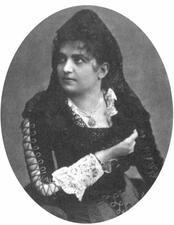
Rosa Sonneschein
Rosa Sonneschein created and edited the American Jewess, the first English-language magazine for Jewish women in the United States, where she advocated for the expansion of women’s roles in the synagogue and the Jewish community and expressed her strong support for Zionism.
Alice Hyneman Sotheran
Bertha Kaplan Spector
Born in a Russian shtetl, Bertha Kaplan Spector became a bacteriologist whose authoritative research helped to control an epidemic of amebic dysentery during the Chicago Century of Progress World’s Fair. Her work contributed to a better understanding of the disease, as well as to new standards of hygiene.
Bella Spewack
Bella Spewack, in collaboration with her husband Sam, is known for writing some of the most memorable works of musical theater history, including Leave It to Me (1938) and Kiss Me Kate (1948). The Spewacks also wrote screenplays for several 1940s Hollywood hits, such as Weekend at the Waldorf. The couple contributed to many Jewish organizations and founded the Spewack Sports Club for the Handicapped in Ramat Gan, Israel.
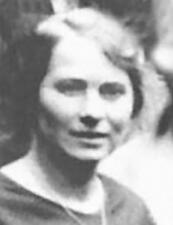
Sabina Spielrein

Susan Stamberg
Susan Stamberg, the first full-time woman anchor of a national nightly news broadcast, played an important role in making National Public Radio (NPR) a news organization that offered pioneering opportunities to women journalists. Her half-century career at NPR opened the way for other women by demonstrating competence, originality, and compassion in reporting and interviewing.
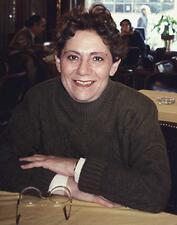
Alicia Steimberg
Fiction writer Alicia Steimberg (Buenos Aires, Argentina, 1933-2012) garnered important literary prizes. Her work as a translator was awarded by the Konex Foundation and she served the government as Director of Books of the Secretariat of Culture.
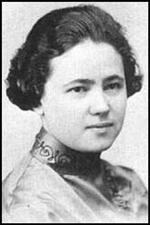
Mollie Steimer
Mollie Steimer earned nationwide attention for her refusal to compromise her anarchist beliefs during the widely publicized 1918 trial in which she was sentenced to prison under the Sedition Act. Later deported to Russia and then to Germany, Steimer continued her anarchist activities throughout her life.
Hannah Stein
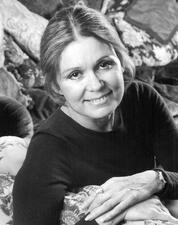
Gloria Steinem
Gloria Steinem was a leader of second-wave feminism and the co-founder of Ms. Magazine, the first feminist periodical with a national readership. As a journalist and spokesperson, she mobilized a generation of women to advance the cause of women’s liberation. Steinem has worked tirelessly all her life as an advocate for change.

Madame Goldye Steiner, aka Gladys Mae Sellers
Madame Goldye Steiner was the first known African-American woman singer of khazones, or Ashkenazi Jewish liturgical music. She was the only known African-American woman in the khaznte artistic movement in which non-synagogue audiences experienced khazones, sung by women in concert halls, on the radio, and on gramophone recordings.
Jewish Gender Stereotypes in the United States
Stereotypes of Jews have existed from their arrival in the New World to the present. Jews were portrayed as greedy, unscrupulous, and unrefined. However, Jews also created stereotypes about one another based on class, gender, and religion. Specifically, the Ghetto Girl, Jewish Mother, JAP, and others reflected tensions between genders about the place of Jews in the economy and culture.
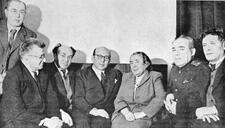
Lina Solomonovna Stern (Shtern)
Lina Shtern, biochemist and physician, was the first woman professor at the University of Geneva and the first woman named to the Soviet Academy of Sciences. Born in Latvia, then part of the Russian Empire, she returned to the Soviet Union out of political idealism. A member of the Jewish Anti-Fascist Committee during World War II, she was a victim of postwar repressions that targeted both scientists and Jews.
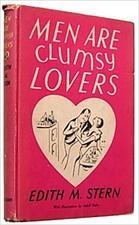
Edith Mendel Stern
A prolific writer as well as an activist in the mental health field, Edith Stern authored four novels and many guides for laypeople on the subjects of mental illness, aging, and differently abled children.
Elizabeth Stern
Eva Michaelis Stern
Eva Michaelis Stern was co-founder and director of the fundraising arm of the Youth Aliyah in Germany, and later the director of the Youth Aliyah office in London. Over the course of WWII, she helped more than 1000 children from countries all over Europe immigrate to Palestine.
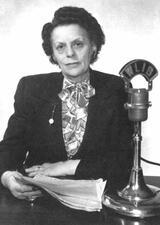
Estelle Sternberger
Believing in a future where all people had a voice and women’s work was valued, Estelle Sternberger found a myriad of ways to reshape public opinion, from hosting a political radio show to leading an organization for peace.
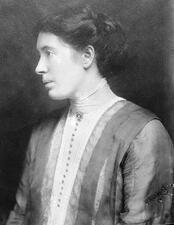
Rose Pastor Stokes
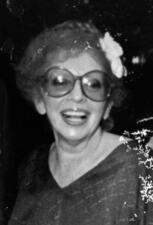
Tavy Stone
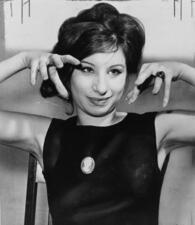
Barbra Streisand
Manya Gordon Strunsky
Manya Gordon Strunsky was a socialist activist and a respected writer on political and social issues. Strunsky was also instrumental in bringing Jewish immigrants from czarist Russia to America and helping them to become settled.
Sara Sugarman
Sara Sugarman is a Welsh-born movie director and actor, who made her mark as a small-screen performer before stepping behind the camera to direct international award-winning movies with a Welsh twist.
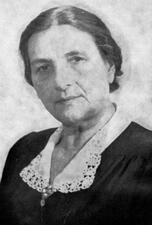
Hasya Sukenik-Feinsod
Hasya Sukenik Feinsod served as director of the Hebrew Kindergarten Teachers College. In 1919 Feinsod was appointed by the Education Committee to serve as superintendent of kindergartens in Jerusalem. She headed the Association of Kindergarten Teachers, and she was the first and only female representative on the Education Committee.
Elsie K. Sulzberger
Elsie K. Sulzberger had an important public career through her leadership in the National Council of Jewish Women and in the early twentieth-century birth control movement.
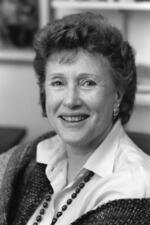
Amy Swerdlow
Amy Swerdlow (1923-2012), child of a Communist household in the Bronx, shared her parents’ dedication to making a better world but developed her own political agenda. She became a leader of the global women’s peace movement, a pioneer in the field of women’s history, and a professor of history and women’s studies at Sarah Lawrence College in Yonkers, New York.


